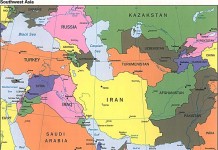Context

After Tunisia, the protest in Egypt appears to be spreading and gaining momentum. However, Egypt is not Tunisia and stakes for American and Israeli interest in the Middle East are high. Especially, after Muslim Brotherhood asked its supporters to join the protesters. Not only are the affairs of Lebanon in flux, now Egypt appears to be unraveling.
Analysis
Media reports suggest Egyptian defense minister Field Marshal Mohamed Hussein Tantawi made a secret to Washington to gain US support as Mubarak plans a serious crackdown. The official response from Washington has so far emphasized the need for social, political and economic reform in Egypt. However, in his State of the Union address on Tuesday, President Obama dropped a hint indicating what to expect in the Middle East. He stated:
“We saw that same desire to be free in Tunisia, where the will of the people proved more powerful than the writ of a dictator. And tonight, let us be clear: the United States of America stands with the people of Tunisia, and supports the democratic aspirations of all people.”
Although some American media channels changed its original assertion that Tunisian protests were triggered by the leaks of Wikileaks, one thing is clear; Egyptian, Yemeni, Algerian, and Jordanian riots are connected to what happened in Tunisia. Furthermore, US itself is struggling to maintain its role of a fair arbiter in the Arab-Israeli conflict, particularly in the aftermath of the ‘peace flotilla’ incident last year.
United States face two contradictory pressures as it manages its perceptions in the Islamic world, as crucial events take shape in the Middle East. These are:
- US claims to be a friend of Islam, however, its policies are tilted in favor of heavy handed approach of Israel.
- US has asserted support for the aspirants of democracy in the region, but the stagnant dictators and monarchs cannot remain in power without American backing. These authoritarian governments have protected American interests but have failed to provide opportunities for social and economic uplift of its citizens.
The decision of Muslim Brotherhood to join the protesters has particularly explosive consequences for the politics of Egypt and the security of US and Israel. At this juncture, US would like to protect its interests in the region and at the same time maintain a close eye on the unfolding situation in Egypt. If it turns out that Mubarak is unlikely to keep a hold of power, then Egyptian Army would be the next best bet, to manage the transition. The last thing US and Israel would like is to let Muslim Brotherhood gain the upper hand.
At the same time, it would be wrong to understand recent events taking shape in the Middle East on a country-by-country basis. Obviously, each nation-state has its distinctive dynamics, but some thing larger is occurring in the Arab world. The situation in Islamic world appears to be a tinderbox. Anti-American sentiments are running high in many countries. Just yesterday, a person connected to US Consulate in Lahore shot and killed three local civilians, who were reportedly either robbers or assassins. Although details about what took place remain murky, the possibility exists that it was a covert operation against extremists, gone bad.
With public resentment against their governments running high in many despotic regimes of the region, trivial events can quickly snowball. For all intents and purposes, the rulers of these countries have outlived their utility and have focused most of their energies on self survival. From the point of view of US, in such circumstances it’s better to have a managed transition, and thus avoid a full-blown revolution, in which religiously inclined elements are likely to gain the upper hand.



